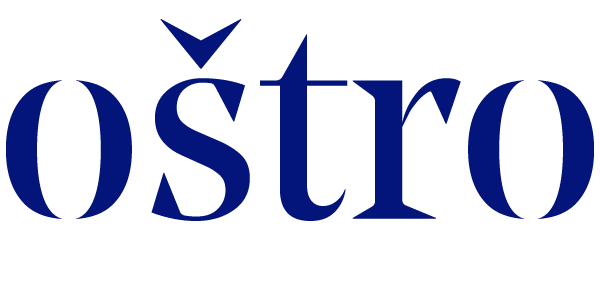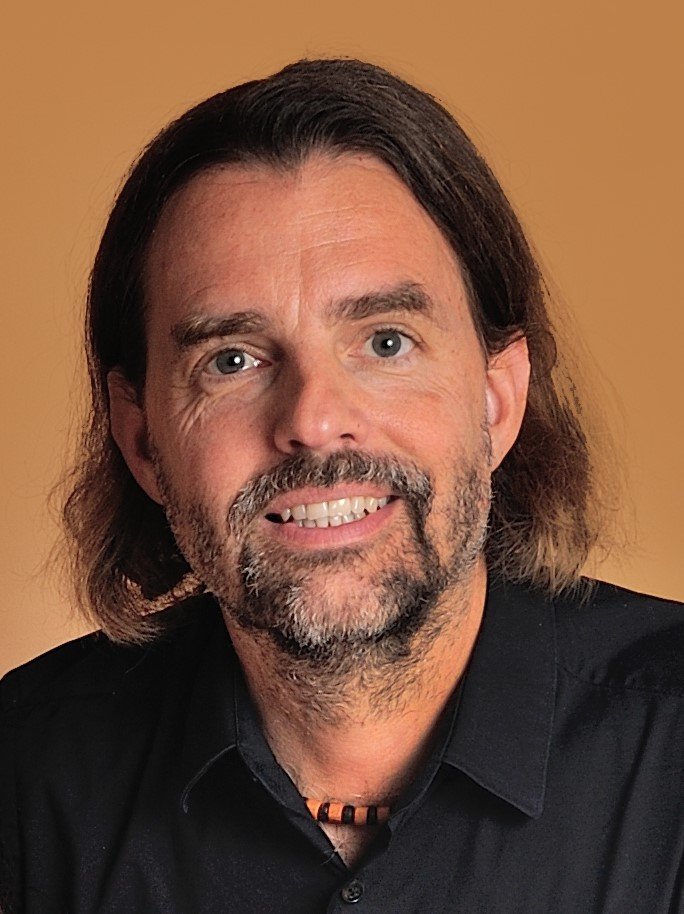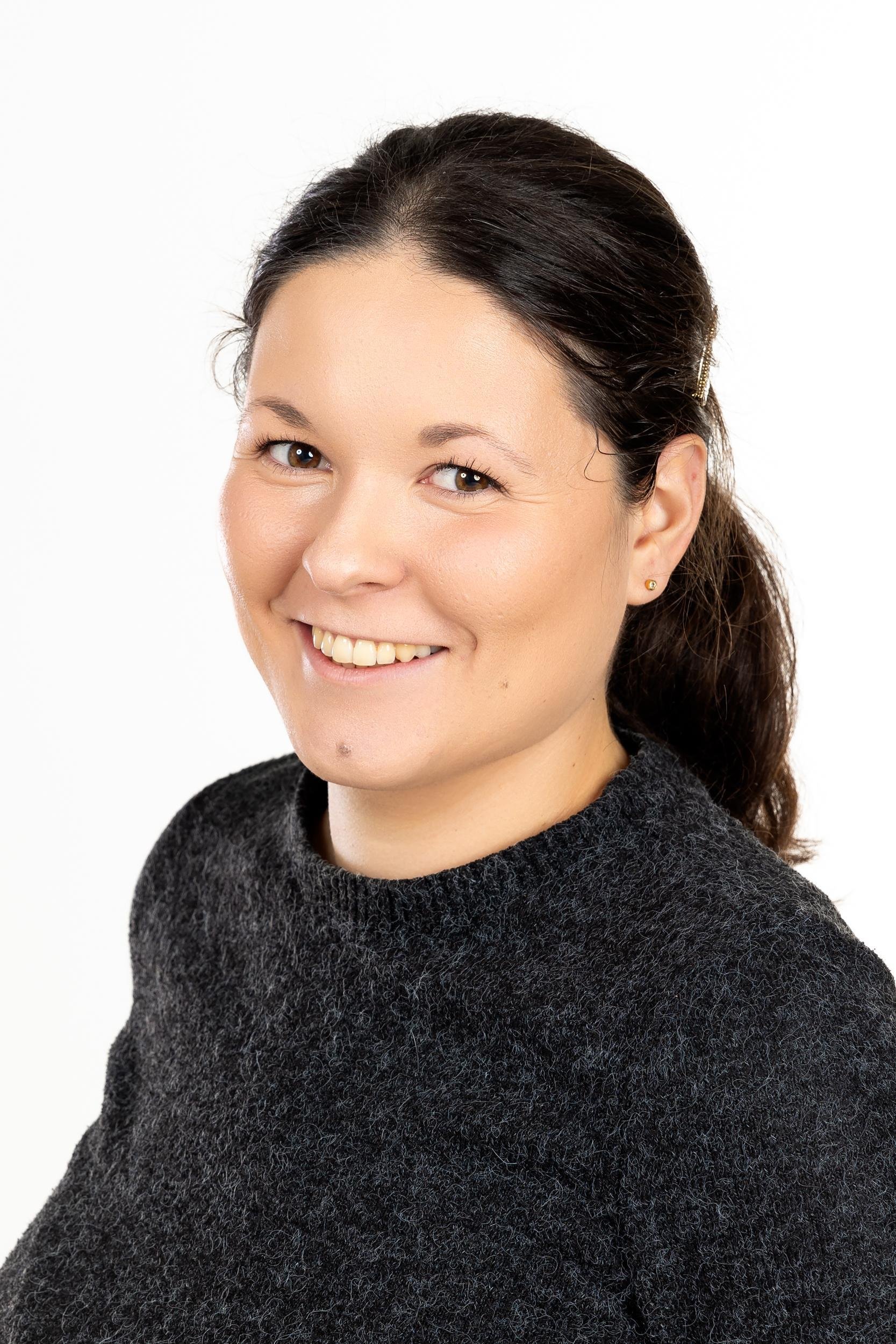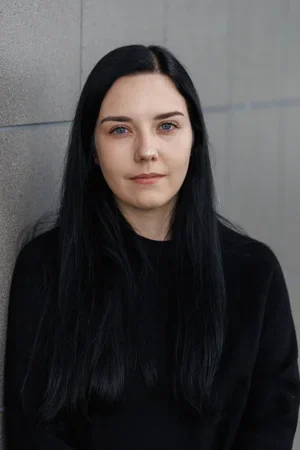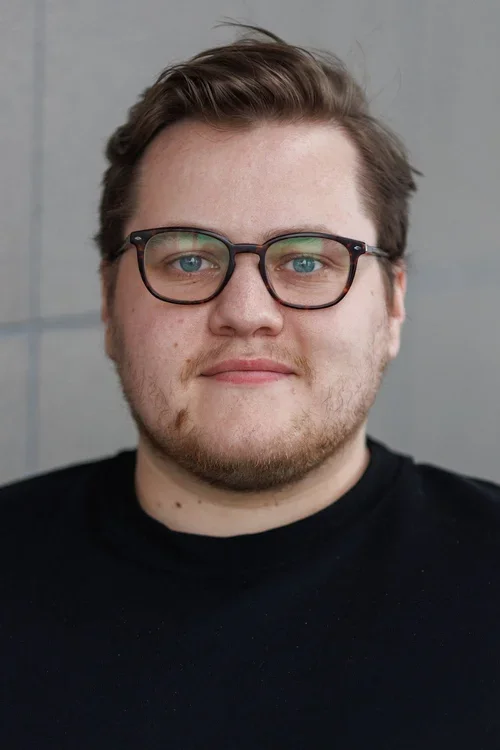People
Newsroom
Photo: Oliver Abraham
founder, editor in chief
anuska@ostro.si
Anuška Delić
“
Today, when we are faced with a decline in democratic norms and principles, investigative journalism is the last frontier before all kinds of totalitarisms.
„
She was taken by investigative journalism in 2006, when she was a journalist of the daily Delo that she divorced at the end of March 2018. She has acquired extensive experiences and specialized skills in investigative and data journalism, and continues to build on those as a the founder of Oštro in Ljubljana, Slovenia.
She spent the year 2015 in courtrooms while persecuted for allegedly publishing classified information in stories about neo-Nazis in the ranks of the political party SDS. She faced a three year prison sentence, but was eventually acquitted of all charges.
At the time, she also established “The MEPs Project” which brought together journalists that represented all 28 EU member states. Their demand that the European Parliament releases data on how Members of the European Parliament spend their professional allowances took them to the EU Court of Justice.
She works for OCCRP as a regional editor. She is a member of the International Consortium of Investigative Journalists (ICIJ) and the network of journalists behind Forbidden Stories. As a member of ground-breaking global investigations, such as the Panama Papers, Paradise Papers, FinCEN Files and The Laundromats she is a co-recipient of several awards, including the Pulitzer Prize on Explanatory Reporting.
For her data work and that of her team she received the Websi media award, and the Watchdog award for exceptional achievements given by the Slovene Association of Journalists. For her work on The MEPs Project the European online media outlet Politico Europe ranked her 6th among 28 most influential Europeans in 2018.
Her heart is divided to Slovenian on her mother’s side, and Croatian on her father’s side, therefore Oštro too will sit at the crossroads of both countries.
journalist, editor
uros@ostro.si
Uroš Škerl Kramberger
“
Journalism is a ticket to all worlds, from the shack to the palace, from the beggar to the Pope. The ticket is always valid for two people. Without the reader, the journalist cannot go anywhere. When they are together, it is fun: the journalist lifts the rugs for the reader to see what’s underneath.
”
Uroš Škerl Kramberger has been writing for Delo and its Saturday supplement Sobotna priloga since 2003, and for Dnevnik and its supplement Objektiv since 2006. In his articles and feature stories from Slovenia and abroad, he has reported on political power and the power of the people, social movements, conflicts, protests and migrations. He is a recipient of the award for outstanding accomplishments in journalism given by the Slovene Association of Journalists, and the European parliament and Anna Lindh Foundation awards. He was an associate assistant at the Faculty of Social Sciences, University of Ljubljana, leading courses on journalistic practice and writing skills. He joined Oštro in 2024.
journalist, editor of Razkrinkavanje.si
zana@ostro.si
Žana Erznožnik
“
Quality journalism makes the authorities and the privileged angry and empowers everyone else.
”
Žana Erznožnik is a journalism graduate and a master of Marketing Communication and Public Relations. During her studies, she was the editor-in-chief of student newspaper Klin and she and her team received two best student achievement awards by the Chair of Journalism at the Faculty of Social Sciences of the University of Ljubljana. Before joining Oštro, she reported on politics at the Slovenian Press Agency and was a journalist at the weekly magazine Mladina. At Oštro, she leads the fact-checking project Razkrinkavanje.si and cooperates in investigative projects. For the Smetosled project, she and the team received commendation from the Association of Journalists of Slovenia.
Photo: Matjaž Tavčar
junior reporter
meta@ostro.si
Meta Gantar
“
Like a mother-in-law who watches every move of her daughter-in-law, investigative journalism monitors data that often remains unchecked. For impactful action, it also needs a critical and responsive readership.
”
Meta Gantar is a graduate of journalism. During her studies at the Faculty of Social Sciences, she was the editor of the student newspaper Klin. As a freelance journalist, she worked for the Tednik show on national television, and continues to hone her speaking skills at the local radio Sora. She first encountered investigative journalism at Oštro where she was developing her skills during her bachelor studies.
journalist, deputy editor of Razkrinkavanje.si
nina@ostro.si
Nina Rozman
“
Investigative journalism, especially in the times of information overload, plays the role of a compass – it directs the public to credible information about power holders, and directs them to hold public office responsibly.
”
Nina Rozman is a graduate in journalism and a master’s student in marketing communication and public relations. She wrote articles for the website of the Naprej/Forward Festival organized by the Slovene Association of Journalists. She also honed her journalistic skills during her internship at the newspaper Dnevnik.
Photo: Matej Povše
student journalist eva@ostro.si
Eva Gračanin
“
Investigative journalism reaches beyond superficial stories, making sense of complex numbers and data, and is vigilant of people in positions of power.
”
Eva Gračanin is a graduate in sociology and comparative studies and a master's student in sociology and pedagogy. In addition to being a journalist at Oštro, she also works as a journalist at Radio Študent.
Photo: Matej Povše
student journalist zan@ostro.si
“
In the information age, when more and more media are becoming couriers of political propaganda, investigative journalism is the one that is concerned with transmitting quality information.
”
Žan Premrov is a graduate of history and cultural anthropology and a student of the pedagogical master's degree in history. Before coming to Oštro, he worked as a journalist for the political editorial office of Radio Študent since 2021.
Illustrators
Matej de Cecco
“
Investigative journalism is drilling down to the bottom, peeking under the carpet, looking at the other side of the coin... All that what today we too often do not find the time – nor patience – for.
”
Matej de Cecco, 1979, Kranj. Illustrator and cartoonist. A self-described translator and interpreter manqué now illustrates youth printed media, as well as designs mascots, mobile games and comic books. He works and lives in Ljubljana.
Milanka Fabjančič
“
Investigative journalism is like a helmet for our nose for which we are often led by.
”
Milanka Fabjančič is an illustrator and author of animated films. After finishing painting studies at the Academy of Fine Arts and Design in Ljubljana, she poured her forces of drawing into storytelling. Often telling stories without words. Her drawings are chock-full of codes and secret meanings and frequently shed light on the lines of writers, columnists or screenwriters from new, unexpected viewpoints. She teaches the subject of Zgodboris (Graphic stories) at the Academy of Fine Arts, University of Nova Gorica. She adores animated films. And in recent years, this is what she invests most of her time in. She loves down-to-earth people and dreamers also. But she dislikes being led by her nose.
Samira Kentrić
“
Abuse of power leads to outrage that sparks inspiration to inform others.
”
Samira Kentrić is a visual artist who weaves public and political speech into the intimate sphere of our everyday life. With her work she wants to communicate that which is still not reflected in the contemporary society, and thus unpleasant and hidden. So far, she provided artwork for numerous books and newspapers, among them Objektiv (Lens) by Dnevnik daily, the Saturday supplement by Delo (Work) daily, Zaupne besede (Confidential) by Mobitel, Finance newspaper, Gledališki list (Theatre Programme) by the Ljubljana Academy of Theatre, Radio, Film and Television. She collaborates with various publishing houses and authors, every now and then she writes articles. She has published three graphic novels: Balkanalije (Balkan(n)als), Pismo Adni (Letter to Adna) and Adna.
Management
project manager
Manca Šetinc Vernik
“
Only independent investigative journalism is actually the fourth pillar of any serious democracy and an invaluable source of informed and aware public.
”
Manca Šetinc Vernik is a communication graduate with years of experience in project management, development of didactic modules and manuals, and conducting global learning, human rights and non-discrimination workshops and trainings. She gained experience at the Human Rights Ombudsman of the Republic of Slovenia, the Institute for Ethnic Studies, and in the non-governmental sector, where she has been active for the last 15 years. She also worked as an external expert for the Council of Europe, the European Commission, and the Organization for Security and Cooperation in Europe.
communications manager
petra@ostro.si
Petra Godeša
“
The stories we tell ourselves determine our reality. It depends on us what kind of world we live in—a world of truth or a world of illusions.
”
A graduate in culture studies and journalism, she gained media experience at the media house Delo. Additionally, she wrote for foreign publications such as Unearthed Women, Versopolis, and Slovenia Times as well as Static Media. She still utilises her journalistic knowledge and sixth sense in the field of advocacy and public relations, where she observes with great interest the age of post-truths and the paradox of a technologically advanced but devoid-of-meaning society. She is aware of the importance and power of investigative journalism in a society that faces ideological, geopolitical, and ecological challenges. When she's not working with words, she's wandering through the worlds of images as a photographer.
Board Members
Exceptional individuals from various areas of journalism and media watch over Oštro.
Miranda Patrucić
“
Investigative journalism is one of few things that still make a big difference for the better in the world.
„
Based in Sarajevo, Miranda Patrucić is an investigative reporter and editor in chief of OCCRP focusing on Central Asia, the Balkans and the Caucasus. She is the recipient of the Knight International Journalism Award, the Global Shining Light Award, the IRE Tom Renner Award, the Daniel Pearl Award and the European Press Prize. She is much in demand worldwide for training journalists on how to investigate and uncover corruption, money laundering and how to follow the money. She is a member of the International Consortium of Investigative Journalists (ICIJ) and the network of journalists behind Forbidden Stories.
Nataša Briški
“
Investigative journalism is the essence of journalistic profession. Without those who help us sort the wheat from the chaff, the world would be a lot less democratic and free.
„
Nataša Briški holds a university degree in journalism and an MA in Political Science from the University of Ljubljana. She works as a consultant for strategic communications and the management of social media and new media platforms, and provides advice in the field of public relations, efficient media communication and public speaking.
She is the co-founder and director of Meta’s List Institute (Sl. Metina lista), a manager of the team that creates the content for metinalista.si web platform, the co-author of podcasts for Meta’s tea (Sl. Metin čaj), the European quarter (Sl. Evropska četrt) and LD;GD. She is also a member of the Expert Council for Gender Equality (the Slovenian Ministry of Labour, Family, Social Affairs and Equal Opportunities), a member of the Committee on Equal Opportunities in Science (the Slovenian Ministry of Education, Science and Sport) and a member of the Human Rights Council.
Nils Mulvad
“
The role of investigative journalism is uncovering all kind of wrongdoings and lies of people and organisations in power.
„
Nils Mulvad is a co-founder of the Global Network for Investigative Journalism and other international networks such as Farmsubsidy.org. He was CEO for the Danish International Center for Analytical Reporting, Dicar, 2001-2006, European journalist of the year in 2006, and he also teaches data and web courses for journalists with focus on using social and mobile media. Nils Mulvad is partner and editor at Kaas & Mulvad and has been associate professor at the Danish School of Media and Journalism from 2001 to 2015.
Žana Erznožnik
“
Quality journalism makes the authorities and the privileged angry and empowers everyone else.
„
Žana Erznožnik is a journalism graduate and a master of Marketing Communication and Public Relations. During her studies, she was the editor-in-chief of student newspaper Klin and she and her team received two best student achievement awards by the Chair of Journalism at the Faculty of Social Sciences of the University of Ljubljana. Before joining Oštro, she reported on politics at the Slovenian Press Agency and was a journalist at the weekly magazine Mladina. At Oštro, she leads the fact-checking project Razkrinkavanje.si and cooperates in investigative projects. For the Smetosled project, she and the team received commendation from the Association of Journalists of Slovenia.
Members of the Board of Experts
Marina Walker Guevara
“
The role of investigative reporting is to uncover broken systems and abuses of power that harm people.
„
Marina Walker Guevara is the Executive Editor at the Pulitzer Center. Formerly, she was the deputy director of the International Consortium of Investigative Journalists, a network of reporters in 80 countries who collaborate on stories of global concern. She has managed the two largest collaborations of reporters in journalism’s history: the Panama Papers and the Paradise Papers, which involved hundreds of journalists and media partners using technology to unravel stories of public interest from terabytes of leaked financial data.
Mojca Pajnik
“
Investigative work, the disclosure of truth that the power-holders are trying to conceal, is a cornerstone of quality journalism which is key to maintaining a democracy that functions in the interest of the public.
„
Mojca Pajnik is an associate professor at the Department of Media and Communication Studies at the Faculty of Social Sciences, University of Ljubljana, where she teaches about media systems as well as political and intercultural communication. She is a Research Counselor at the Peace Institute, head of the research program »Equality and human rights in the age of global governance« and the head of several research projects in the field of media and communication.
